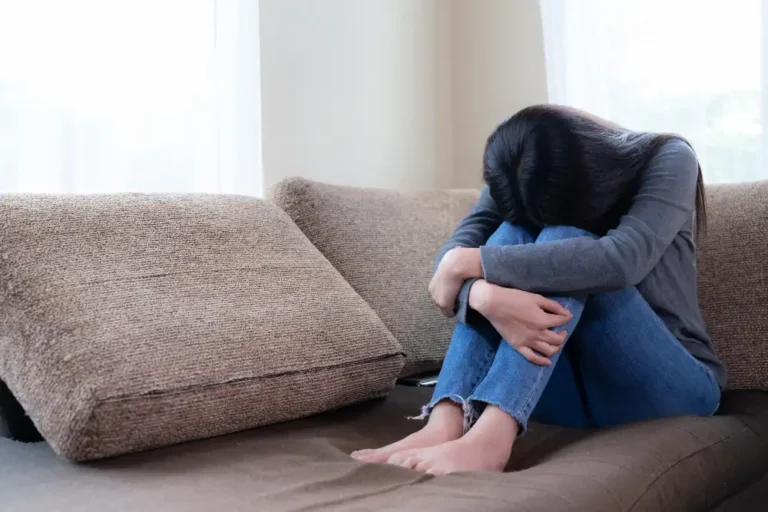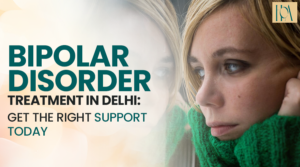One of the most prevalent mental health conditions globally is anxiety disorder. It goes beyond simple anxiety or fear during stressful situations. Instead, it involves continuous and excessive worry or fear about various things, significantly impacting day-to-day life. Seeking the right anxiety treatment can help individuals regain control and improve their overall well-being.
Types of anxiety disorders
- Generalized anxiety disorder (GAD) – This type of disorder occurs when there is extreme worry about daily events such as financial condition, health etc. It may persist for months or upto years.
- Social anxiety disorder – This occurs when there is extreme fear about being embarrassed or judged socially and this may lead to isolation.
- Panic disorder – Panic attacks mimic heart attacks, accompanied by shortness of breath, racing heart beat, chest pain etc.
- Phobias – Phobias are extreme fear of a situation, place or event such as fear of height, water, fire, snakes etc.
- Obsessive-compulsive disorder (OCD) – This is a situation of repeated thoughts (obsessions) which are followed by compulsive behaviors.
- Post-Traumatic Stress Disorder (PTSD) – This anxiety disorder occurs post a traumatic event and leads to flashbacks or bad dreams.
Symptoms of anxiety disorder
The anxiety disorder affects various aspects of human life such as emotional, physical, behavioral as well as cognitive health.
- Physical health – During any situation of anxiety and stress, our body’s natural fight-or-flight mode gets activated due to which there can be trembling or sweating. Also heart palpitations are commonly seen in individuals with anxiety disorder such as heart beats/minute exceeding the normal range or skipped heart beats. Besides these symptoms, mental worry also makes a person physically exhausted and even impacts the gastrointestinal system, leading to diarrhea, nausea or irritable bowel syndrome (IBS).
- Emotional health – Anxiety disorder completely imbalances an individual’s emotional health and he/she may experience fear that is out of control, even in the situations that are not dreadful. The dread is persistent and a person is not able to control his/her emotions.
- Behavioral issues – An individual with such a disorder may find it hard to encounter any individual related to the fear or even apprehend from visiting the place or performing certain activities that remind of that threat. Individuals may look extremely restless and have a pacing heart beat.
- Cognitive changes – Anxiety disorder can cause various cognitive changes and the individual might find it hard to concentrate, sometimes even leading to ‘catastrophizing’ (imagining worst-case scenarios and getting fearful).

Causes of anxiety disorder
- Biological factors – Anxiety disorder can be easily inherited if any of your parents has it and sometimes an imbalance of neurotransmitters such as dopamine, serotonin or GABA (gamma-aminobutyric acid) can also progress into an anxiety disorder.
- Environmental stressors – When an individual is faced with a stressful situation for a long term such as accident, injury, abuse etc., any financial crisis, broken marriages or death of a closed one, there is high risk of developing anxiety disorder.
- Health conditions – Certain health conditions can exacerbate anxiety such as thyroid conditions, hormonal disturbances, chronic infection etc. Sometimes long term usage of drugs or medications can also trigger anxiety.
Effective anxiety treatment options
- Psychotherapy – Psychotherapy such as cognitive behavioral therapy (CBT) is extremely helpful in which the psychologist identifies the triggering thought patterns and tries to replace them with a balanced approach. Other therapies include exposure therapy and acceptance and commitment therapy (ACT).
- Alternative therapy – Some individuals also prefer aromatherapy to calm their minds or consume herbal supplements namely ashwagandha, passion flower etc.
- Prescription medications – Antidepressant drugs can be prescribed by your psychologist such as selective serotonin reuptake inhibitors (SSRI) to regulate serotonin levels and Serotonin-norepinephrine reuptake inhibitors (SNRI) to regulate both serotonin as well as norepinephrine.
- Lifestyle modifications – Physical activity is a natural way to relieve stress by releasing endorphins. Also mindfulness and breathing exercises can be performed to keep the brain in the center. Another way to get relief from stress is getting a good night sleep of 7-9 hours.
Conclusion
Though overwhelming, anxiety disorders can be well dealt with if the right approach is followed. The right anxiety treatment plan can make an individual live a stress-free life and for this, Dr. Ashish Bansal, co-founder of House of Aesthetics, is of great support. Through his evidence-based treatment plan, holistic approach and individualized attention, he has changed numerous lives and is continuing to do so. If you are also suffering from anxiety disorder, the. Dr. Bansal is definitely your first go-to option for better recovery.




